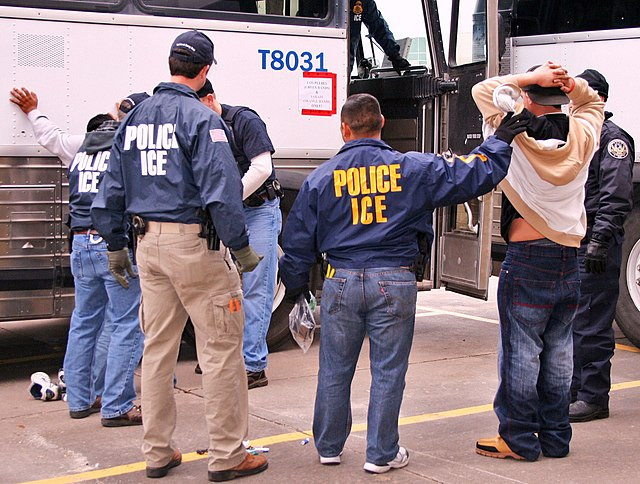Federico Arellano Jr., a U.S. citizen, is battling to bring his family back to the United States after Immigration and Customs Enforcement (ICE) deported his wife, Christina Salazar, and their four children, including newborn twins. The deportation, which occurred on December 11, has left the family stranded in Reynosa, Mexico, a border city with no resources, contacts, or financial support.
Christina Salazar, 23, was taken into custody alongside her children at what the family thought was a routine meeting with immigration officials. The meeting, arranged after the family missed a court hearing in October, turned into an arrest. Salazar had reportedly informed the court that she could not attend the hearing due to health complications following an emergency cesarean section to deliver her twins. The family believed the hearing would be rescheduled.
"This case shouldn't have gone to this extreme," said Isaias Torres, one of the family's immigration attorneys, as reported by KHOU. "There were options, legal options, that were available and he was not given those opportunities. They thought that they were complying and doing as they were told. And it turns out that they were not."
Salazar, born in Mexico, had been awaiting immigration hearings with her two older children. She married Arellano Jr. in 2019, and the couple has been raising their children in Houston. The twins, born in September, are U.S. citizens by birthright. Despite their status, the twins were deported along with their mother and siblings, prompting significant legal and emotional challenges for the family.
According to the family, ICE agents treated Salazar and her children as if they were high-risk criminals during the deportation process. "They were shocked and surprised that they were separated," said Torres. Arellano Jr., who witnessed the arrest, recounted how his children cried as they were taken away. He said he was threatened by ICE agents when he tried to intervene.
The deportation has been criticized for its handling of the situation. The family's attorneys noted that Salazar and her children were not allowed to retrieve coats on the cold December night and were left in Reynosa with no money or connections. "They were treated as if they were high-risk criminals," Torres said in a statement.
The missed court hearing that triggered the deportation was described as a "technical violation" by the family's legal team, who argue that the matter could have been resolved without such drastic measures. At the time of the impromptu meeting with ICE, the family did not have legal representation, which attorneys say contributed to the outcome.
Arellano Jr. is now working with attorneys to file complaints with the Office of Inspector General and to petition immigration authorities to allow his family to re-enter the United States. However, these processes could take months, given the family's current location outside the country.
Torres stated this family needs to be reunited so they can go through the immigration process legally. The legal team plans to pursue all available options to rectify the situation.
ICE, in a statement, confirmed that Salazar had missed her scheduled immigration hearing and was ordered to be removed by an immigration judge. The Department of Justice's Executive Office for Immigration Review, which oversees immigration court decisions, has not responded to media inquiries.
The deportation underscores the challenges faced by mixed-status families navigating the U.S. immigration system. Arellano Jr. expressed frustration and heartbreak over the ordeal, emphasizing that his family was trying to follow the rules.






